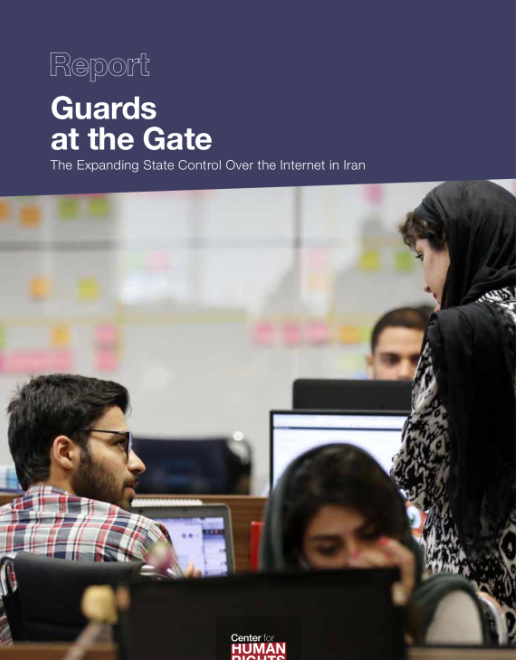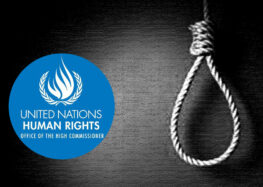State-Developed VPN Would Determine Iranians’ Internet Access Based on Their Job

Hamid Fattahi, the CEO of the state-owned Telecommunication Infrastructure Company (TIC), the sole provider of telecommunication infrastructure to all private and public operators in the Iran.
App Would Expose Users to State Surveillance, Various Security Risks
Recent news that the Iranian government is developing a virtual private network (VPN) app that would grant less censored internet access to select groups of users has raised concerns that the state is implementing a discriminatory system that would restrict the right of access to information to be determined by a person’s profession.
“The project’s objective is to provide unfiltered internet access to different categories of people who need it on the basis of their professional and social circumstances,” said the CEO of the government-owned Telecommunications Infrastructure Company (TIC), Hamid Fattahi, in an interview with the Mehr News Agency on November 11, 2019.
“For instance, there are university academics, physicians, journalists and other segments of society who have their own particular need to access the internet,” he added.
The internet is heavily filtered and censored in Iran, with access to many widely used websites and apps blocked inside the country.
According to the Statistical Center of Iran, 64 percent of Iranians above six-years-old had access to the internet in the Iranian calendar year of 1396 (ended March 20, 2018). As a result of the increasing number of Iranians with internet access, state policies and technical initiatives have increasingly focused on strengthening state control over cyberspace.
Those attempts reached a milestone between November 16-21—a day after protests erupted in dozens of cities across the country—when the Iranian government cut off the vast majority of the country’s access to the international internet, leaving most of the 84 million population limited to the state-developed and controlled national internet.
As of November 21, the Iranian government had also blocked access to the app stores of the Android and iPhone mobile phones, leaving millions of users in the country open to a range of security risks and with phones that can only operate state-approved apps.
It is in this context that the domestic VPN app is being developed, six years after the government’s first failed attempt.
The TIC, which operates under the Ministry of Information and Communications Technology, will focus on developing the technical aspects of the app after receiving parameters currently being drafted by the Working Group for Determining Instances of Criminal Content (WGDICC), according to Fattahi.
Internet Access Determined by and Tied to Your Job

Guards at the Gate: The Expanding State Control Over the Internet in Iran provides an in-depth review of Iran’s internet policies and initiatives, in particular, the development of its state-controlled National Internet Network (NIN), which gives the government newly expanded abilities to control Iranians’ access to the internet and monitor their online communication.
The implementation of this project and the system it would be premised upon infringes upon the human rights of internet users in Iran in two ways.
First, it discriminates between different classes of people according to their social and professional standing, which is a violation of Net Neutrality principles. For example, a bus driver would not have the same level of access to the internet as a physician.
Second, the domestic VPN app would give Iran’s intelligence agencies the ability to monitor users’ private information and online activities.
The domestic VPN app would also require user authentication that would expose the user’s identity, a system the Iranian government has been trying to implement since it began creating the national internet, formally called the National Information Network (NIN), almost two decades ago.
Speaking at NIN’s launch ceremony in August 2016, the deputy telecommunications minister at the time, Nasrollah Jahangard, confirmed that user authentication would be required to enter the network.
Then in November 2017, the Supreme Cyber Council’s (SCC) secretary at the time, Abolhassan Firouzabadi, discussed the government’s the desire to identify users through online authentication as “one of the most important online infrastructure projects in the country, in which all individuals would need user authentication to be active in cyberspace.”
Yet even the VPN app would not allow totally free access to the internet.
On December 4, 2017, Telecommunications Minister Mohammad Javad Azari Jahromi said the app would include different levels of online filtering, which would be determined by state institutions including the judiciary.
“We have examined the judiciary’s proposals and prepared a response on the technical specifications, which we hope will be approved,” he added.
In early November, many Iranian users on social media criticized the project, resulting in some government officials, including Jahromi, walking back their previous statements.
“A recent published report about a plan for different levels of online filtering is fundamentally false,” he tweeted on December 9, five days after his initial statement. “No such plan has been under consideration at the Telecommunications Ministry.”
Nearly one year later, Fattahi’s interview in fact confirmed the project is active.
Read a version of this article in Persian.





